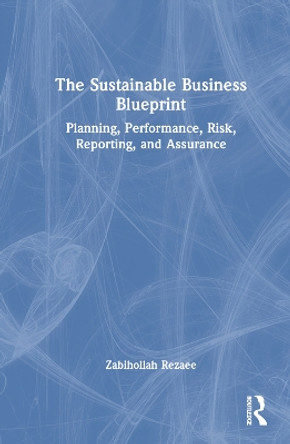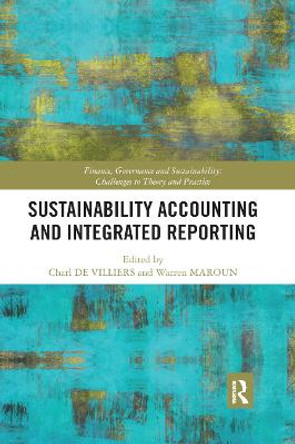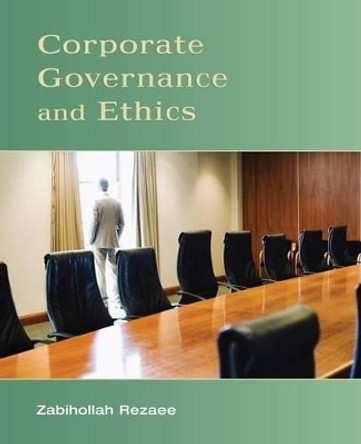Description
Business sustainability has advanced from greenwashing and branding to being a business imperative. Stakeholders, including shareholders, demand, regulators require, and companies now need to report their sustainability performance. No longer is this a choice for businesses. A decade ago, fewer than 50 companies released sustainability reports, and now more 8,000 global public companies disclose sustainability performance information on some or all five economic, governance, social, ethical, and environmental (EGSEE) dimensions of sustainability performance, and this trend is expected to continue. Indeed, more than 6,000 European public companies would be required to disclose their environmental, social, governance and diversity information for their 2017 reporting year. However, the proper determination of sustainability performance, accurate and reliable reporting and independent assurance of sustainability information remain major challenges for organizations of all types and sizes.
Through reading this book, you will:
Identify sustainability strategies to create innovation in new products, services, energy-efficiency, environmental facilities and green initiatives.
Understand the role and responsibilities of all participants in the corporate reporting process, including directors, officers, internal auditors, external auditors, legal counsel, and investors.
See ways to improve public trust, investor confidence, business reputation, employee satisfaction, corporate culture, social responsibility and environmental performance.
Learn all five economic, governance, social, ethical and environmental (EGSEE) dimensions of sustainability performance separately and their integrated and interactive effects on achieving the goal of creating sustainable value for all stakeholders, including shareholders.
Learn how to adopt best practices in sustainability development and performance, and deliver effective integrated sustainability reporting and assurance.
Business Sustainability by Zabihollah Rezaee attempts a comprehensive look at sustainability issues from a business perspective that is part philosophy, part MBA course and part instruction manual. Its greatest asset is the systems-wide approach to defining and implementing sustainability. Rezaee widens the lens from triple-bottom line to multiple bottom line, from ESG (environment, social, governance) to EGSEE (economic, governance, social, ethical and environmental) considerations. I'm particularly heartened to see attention paid to the ethical ramifications of sustainability. Whether ethical practices are implemented specifically or a side effect of long-term economic value, for example from branding, improved efficiency or increased productivity, it is important to respect ethics as a factor in sustainability. This book can be read for the theories behind business sustainability, for an introduction to the application of sustainability and the many organizations already well-involved with this work, or for the action suggestions which will serve CSOs (chief sustainability officers) well. It can be especially useful to those drawn from other business tracks such as marketing or operations who are not as entrenched in the systemic view needed and practiced by those of us who have come up through the growing ranks of sustainability professionals. -- Rosalinda Sanquiche, Executive Director, Ethical Markets Media There are now multiple "pop culture" definitions and versions of what gets called "sustainability", but very few authors have taken the years of hard work needed to refine the growing amount of data/knowledge into a digestible work that an executive can immediately begin to apply to organizational governance, performance, and strategy. Business Sustainability does just that for professionals already steeped in such assignments as well as the newer senior business managers who find themselves tasked with making this function tactically operational. -- Darryl Vernon Poole, Fogelman College of Business & Economics, University of Memphis and Trustee Emeritus, Bentley University Zabihollah Rezaee's Business Sustainability: Performance, Compliance, Accountability, and Integrated Reporting makes a key contribution to the area of sustainability in business. Rezaee takes a more inclusive approach to sustainability performance and reporting by recommending that businesses use a multiple bottom line (MBL) approach rather than the more basic triple-bottom line approach. An MBL approach examines economic, governance, social, ethical, and environmental performance of an organization's activities to determine sustainability. This approach expands the definition of sustainability beyond environmental or economic indicators to advocate for a holistic methodology that factors in the well-being of the organization and its impact on stakeholders. Rezaee's view of sustainability takes a multidimensional approach incorporating organizational value, long-term performance, and stakeholder theory through the use of financial and nonfinancial measures. This unique way of viewing sustainability and the emphasis on accountability and integrated reporting has the potential to change the way researchers, companies, and public policy makers view this increasingly important field. -- O.C. Ferrell, University Distinguished Professor, Professor of Marketing and Bill Daniels Professor of Business Ethics at the University of New Mexico
About the Author
ZABIHOLLAH REZAEE, Professor of Accountancy at the University of Memphis, is the author of 8 books, the most recent winning the 2013 Axiom Gold Award in the category of Business Ethics.
Book Information
ISBN 9781783535040
Author Prof. Zabihollah Rezaee
Format Paperback
Page Count 306
Imprint Greenleaf Publishing
Publisher Taylor & Francis Ltd
Weight(grams) 476g








